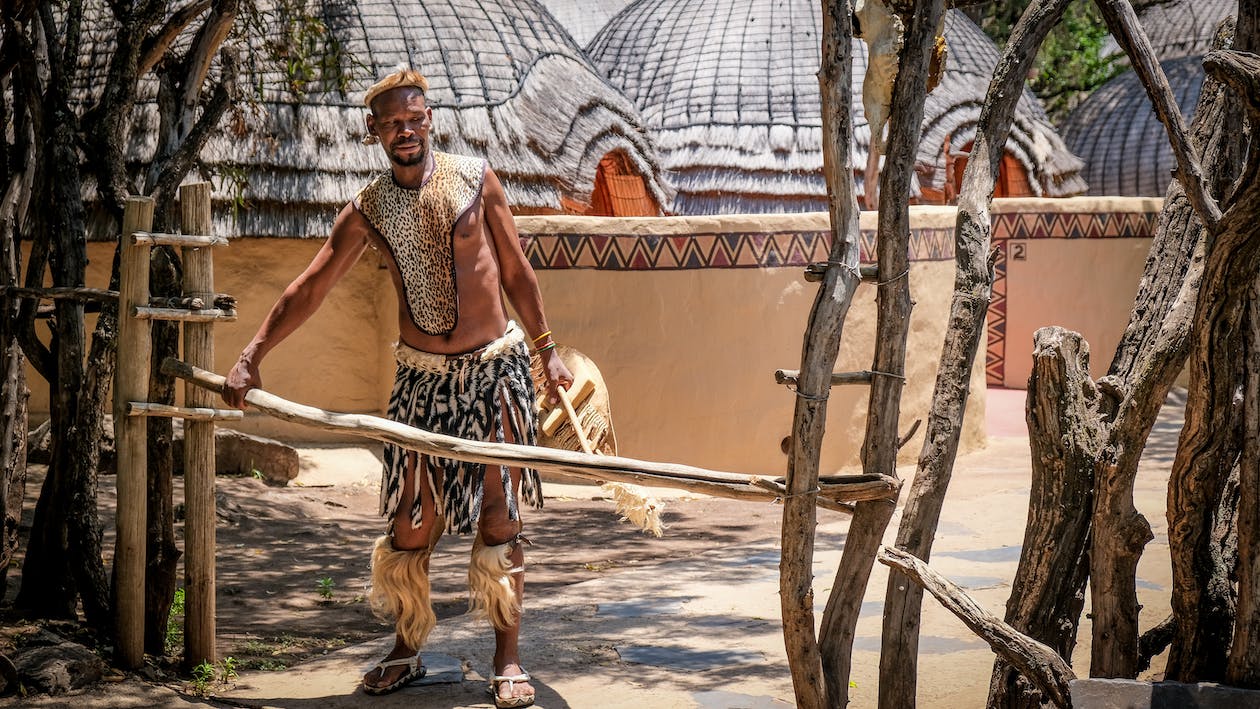Introduction: Considerate the Importance of Cultural Etiquette
Embarking on a journey to a new terminus is not just about exploring landscapes; it’s also a cultural trip. Why does cultural sensitivity matter in travel? Circumnavigating cultural differences with grace and respect improves your travel experience, fostering connections and expansion your perspective.
Researching Your Destination: The Power of Pre-trip Research
Before location foot in a new land, equip yourself with information. How does pre-trip research help in circumnavigating cultural differences? Investigate local standards, customs, and taboos to ensure a flat and respectful interaction with the public.
Researching Your Terminus: Awareness of Local Taboos
Cultural bans can vary widely. What local taboos should wanderers be aware of? Understanding and respecting these bans, whether related to gestures, language, or behavior, is essential for building optimistic connections.

Dress Cypher Dos and Don’ts: Decoding Dress Protocol
Dress codes take a lot about a ethos. How can travellers familiarise their attire to cultural prospects? Learn about local dress norms, sacred considerations, and modesty guidelines to dress suitably and show respect.
Dress Code Dos and Don’ts: Navigating Religious and Modesty Guidelines
Religious and diffidence guidelines play a crucial role in many cultures. How can travellers circumnavigate these guidelines while maintaining their comfort? Understanding the balance between personal luxury and cultural expectations is key.
Greetings and Gestures Across Cultures: Grasping International Greetings
Greeting taxes vary globally. How can travellers principal international greetings? Whether it’s a handshake, a bow, or other old-style gestures, adapt to the local way of salutation to show openness and respect.
Greetings and Gestures Across Cultures: Understanding Cultural Variations in Handshakes and Bowing
Different cultures have distinct handshakes and prostration traditions. What are the cultural variations, and how can travellers navigate them? Being aware of these differences avoids unintentional mistakes.
Greetings and Gestures Across Cultures: Gestures to Avoid: A Global Perspective
Some gesticulations can be offensive in certain cultures. What gestures should travellers avoid globally? Steer clear of potentially impolite gestures, ensuring your message is understood positively.

Communication Styles and Language Thoughts: Navigating Language Barriers
Language fences are common, but they can be bridged. How can travellers navigate language barriers effectively? Learn basic phrases in the local language and use translation apps to enable communication.
Communication Styles and Language Considerations: Adjusting Communication Styles for Cultural Nuances
Communication panaches vary across cultures. How can travellers adjust their communication styles to cultural nuances? Be attuned to non-verbal cues, tone, and context to convey messages suitably.
Dining Etiquette About the World: The Art of Dining Gracefully
Eating etiquette reflects cultural standards. How can travellers gracefully navigate dining circumstances in different cultures? Learn about bench manners, seating arrangements, and lunchtime traditions.
Dining Etiquette Around the World: Table Manners in Dissimilar Cultures
Every ethos has its unique table manners. What are some common table behaviours traveller’s should be aware of? From using gears to understanding mealtime rituals, adapting shows cultural respect.
Dining Propriety Around the World: Handling Food Allergies and Dietary Restrictions Abroad
Managing dietary restrictions is crucial for traveller’s. How can individuals with food aversions or dietary restrictions navigate diverse cuisines? Communicate your needs obviously and research suitable local choices.
Respecting Blessed Spaces and Traditions: Visiting Religious and Sacred Sites
Staying spiritual sites requires special consideration. How can traveller’s behave respectfully in sacred spaces? Understand appropriate attire, gestures, and behaviours to maintain the sanctity of these places.
Respecting Sacred Spaces and Civilisations: Appropriate Behaviour and Dress in Holy Places
Dress and behaviour expectations in holy places differ. What are some general guidelines for appropriate behaviour and dress? Respectful attire and demeanour prove cultural awareness and respect.
Respecting Sacred Spaces and Traditions: Participating in Traditional Ceremonies
Engaging in traditional ceremonies enriches the travel experience. How can traveller’s respectfully participate in local rites? Seek permission, observe, and follow local customs to respect traditions.
Gift-Giving Duties: The Significance of Gift-Giving
Gift-giving is a world-wide expression of goodwill. How does sympathetic the significance of gift-giving enhance cultural interactions? Thoughtful gifts strengthen connections and show appreciation.

Gift-Giving Customs: Thoughtful Gifts Across Cultures
Different cultures appreciate different types of gifts. What are some universally appreciated gifts, and how can traveller’s choose appropriate presents? Consider local preferences and cultural symbolism when selecting gifts.
Gift-Giving Customs: Gifts to Avoid: Cultural Sensitivity in Presenting
Not all gifts are universally appropriate. What types of gifts should traveller’s avoid presenting in different cultures? Be mindful of cultural prohibitions and sensitivities to prevent unintentional offense.
Understanding Personal Space: Respecting Boundaries
Personal space varies culturally. How can traveller’s respect personal space in different regions? Be aware of cultural variances in proximity preferences to avoid distress.
Understanding Individual Space: Cultural Variances in Personal Space
Different cultures have dissimilar expectations regarding personal space. What are some instances of cultural alterations, and how can traveller’s adapt? Respect cultural norms to substitute positive interactions.
Sympathetic Personal Space: Queues and Crowds: A Cross-cultural Perspective
Circumnavigating queues and crowds requires cultural consciousness. How do different cultures approach line up, and what etiquettes should travelers observe? Be enduring, follow local customs, and avoid needless disruption.
Dealing with Cultural Misunderstandings: Addressing Cross-cultural Confusions
Misunderstandings are unavoidable, but addressing them is crucial. How can traveller’s address and correct cross-cultural confusions? Apologize sincerely, seek clarification, and absorb from the experience.
Trade with Cultural Mistakes: Apologizing and Correcting Missteps
Apologizing is a world-wide sign of humility. How can traveller’s apologize for cultural mistakes, and what steps should they take to correct them? Acknowledge the error, apologize genuinely, and educate by hand.
Dealing with Cultural Mistakes: Learning from Mistakes: A Humble Method
Learning from mistakes is part of the cultural learning process. How can traveller’s approach cultural mistakes with self-effacement and a willingness to learn? Embrace the chance to grow and deepen cultural understanding.
Cultural Sensitivity in Social Media and Photography: Circumnavigating Online Etiquette
Social media requires cultural compassion. How can traveller’s navigate online etiquette to share experiences respectfully? Request permission before sharing photos and avoid culturally unresponsive captions.
Cultural Compassion in Social Media and Photography: Requesting Consent for Photos
Respecting individuals’ privacy is vital, especially in photography. Why is requesting consent crucial, and how can traveller’s approach this respectfully? Prioritize consent and explain the drive of the photo.
Cultural Sensitivity in Social Media and Photography: Sharing Cultural Experiences Deferentially
Sharing cultural experiences online can be inspiring. How can traveller’s share their experiences respectfully, avoiding cultural appropriation? Emphasize cultural gratitude, provide context, and encourage positive deliberations.
Adapting to Local Social Norms: Participating in Local Social Customs
Engaging in local social customs nurtures cultural connections. How can traveller’s participate in social customs and civilisations? Attend local gatherings, festivals, and events to submerge yourself in the community.
Adapting to Local Social Norms: Attending Social Gatherings and Events
Social gatherings offer unique visions into a culture. How can traveller’s approach and enjoy local events and social gatherings? Be open, friendly, and respectful, embracing the opportunity to attach with locals.
Adapting to Local Social Norms: Embracing Cultural Festivals and Celebrations
Cultural festivals are celebrations of diversity. How can traveller’s embrace and respectfully participate in local festivals? Understand the significance, follow local customs, and join in the festivities.
Handling Tipping and Bargaining: Tipping Guidelines Around the World
Tipping customs vary globally. What are some general tipping guidelines, and how can traveller’s navigate them? Investigate local expectations and adjust gratuities accordingly to show gratitude.
Handling Tipping and Bargaining: Bargaining Etiquette in Local Markets
Bargaining is a cultural norm in many areas. How can traveller’s navigate bargaining etiquette in local markets? Approach it as a friendly exchange, be respectful, and know when to accept a fair deal.
Handling Tipping and Bargaining: Knowing When Not to Bargain
While haggling is common, there are exceptions. In what situations should traveller’s refrain from bargaining? Recognize when it’s unsuitable and respect established prices, especially in sure cultural contexts.
Navigating Gender Norms: Gender Roles in Different Cultures
Gender norms vary crossways cultures. How can traveller’s navigate and respect diverse gender roles during their journeys? Be observant, respect local customs, and empower gender equality.
Navigating Gender Norms: Respecting Cultural Expectations
Cultural expectations regarding gender roles require consideration. How can traveller’s show respect for cultural expectations while promoting inclusivity? Be open-minded, ask questions when appropriate, and embrace variety.
Navigating Gender Norms: Empowering and Supporting Gender Equality
Secondary gender equality is vital. How can traveller’s contribute to gender equality while regarding local cultures? Advocate for inclusivity, support local initiatives, and engage in deferential conversations.
Conclusion: Embracing Variety Through Cultural Etiquette
As you journey through diverse cultures, remember that cultural etiquette is a bridge linking people. How does embracing cultural protocol enhance your travel experience? By fostering honest connections, breaking down barriers, and making lasting memories across limits.

FAQs:
- How can I learn about the resident customs of a destination before traveling?
- Conduct pre-trip research by reading travel guides, cultural blogs, and engaging with locals online. Respectful inquiry is key to understanding cultural norms.
- What should I do if I unintentionally upset someone due to a cultural mistake?
- Apologize sincerely, acknowledge the mistake, and seek guidance from locals on how to rectify the state. Learning from the experience is essential for cultural development.
- Is it necessary to learn the local language before itinerant to a new country?
- While not mandatory, learning basic phrases shows respect for the local ethos. Utilize language apps, phrasebooks, and engage in simple conversations to enhance your portable experience.
- How can I participate in local centenaries without being intrusive?
- Research the significance of the festival, dress appropriately, and shadow local customs. Attend as a respectful observer, and if invited to participate, do so with gratitude and cultural compassion.
- What are some general tips for respectful taking pictures in dissimilar cultures?
- Always ask for permission before taking photos of people. Be aware of cultural compassions regarding religious sites and ceremonies. Avoid taking photos in restricted areas, and respect persons’ privacy.
